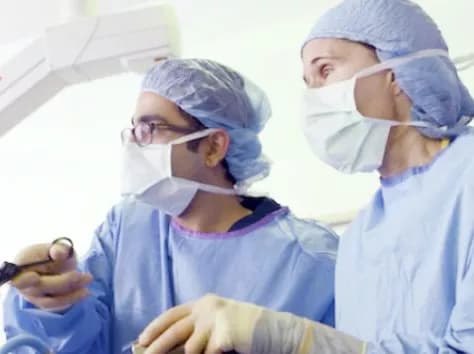
Brain Activity, Response To Food Cues Differ In Severely Obese Women, Study Shows
The brain's reward centers in severely obese women continue to respond to food cues even after they've eaten and are no longer hungry, in contrast to their lean counterparts, according to a recent study by a multidisciplinary team at UT Southwestern Medical Center.
The study, published recently in the journal Obesity, compared attitudes and the brain activity of 15 severely obese women (those with a body mass index greater than 35) and 15 lean women (those with a BMI under 25).
MRI images of the study participants were taken before and after a meal. Both groups showed significantly increased activity in the neo- and limbic cortices and midbrain when they were hungry. After eating, however, that brain activity dropped among lean participants while continuing in their obese counterparts.
Even after eating and reporting they were full, the severely obese women continued to react to pictures of food in much the same way they had when fasting, as exhibited in brain scans.
"Before or after the meal, they're just as excited about eating," said Dr. Nancy Puzziferri, Assistant Professor of Surgery at UT Southwestern and senior author of the study. "It seems they have an instinctive drive to keep eating."
While the appeal of pictured food dropped 15 percent for the lean women after they ate, the severely obese women showed only a 4 percent decline, based on brain scans using functional magnetic resonance imaging (fMRI) to measure brain activity. After eating, activity in regions in the prefrontal cortex and posterior cingulate cortex significantly changed in the lean group, but not in the obese group. The obese study participants maintained activation in the midbrain, one of the body's most potent reward centers.
Study participants had fasted for nine hours prior to testing. They were asked to rate their level of hunger or fullness, then given a brain scan as they viewed pictures of food. Again, they were asked to rate their level of hunger. Over the next hour, the women were fed a meal of lean beef or chicken, potatoes or rice, green beans, canned peaches, and iced tea or water. After eating, the participants went through another battery of hunger/fullness ratings and fMRI scans while exposed to pictures of food.
The obese women showed sustained "hungry" brain activation, even though they reported the same increase in satiation as their lean counterparts.
So what does this mean for obese people?
"These findings may explain why some people with severe obesity report an underlying drive to eat continually despite not feeling hungry," said Dr. Puzziferri, who specializes in bariatric and weight loss surgery. "In contrast, lean women when full will either stop eating or just sample a food they crave. It's just not a level playing field -- it's harder for some people to maintain a healthy weight than others."
The severely obese women in the study, who weighed between 202 and 316 pounds, were candidates for bariatric surgery to lose weight. The study is following these women after surgery to determine if their brain activation patterns change.
Related Articles
Test Your Knowledge
Asked by users
Related Centers
Related Specialties
Related Physicians
Related Procedures
Related Resources
Join DoveHubs
and connect with fellow professionals

0 Comments
Please log in to post a comment.